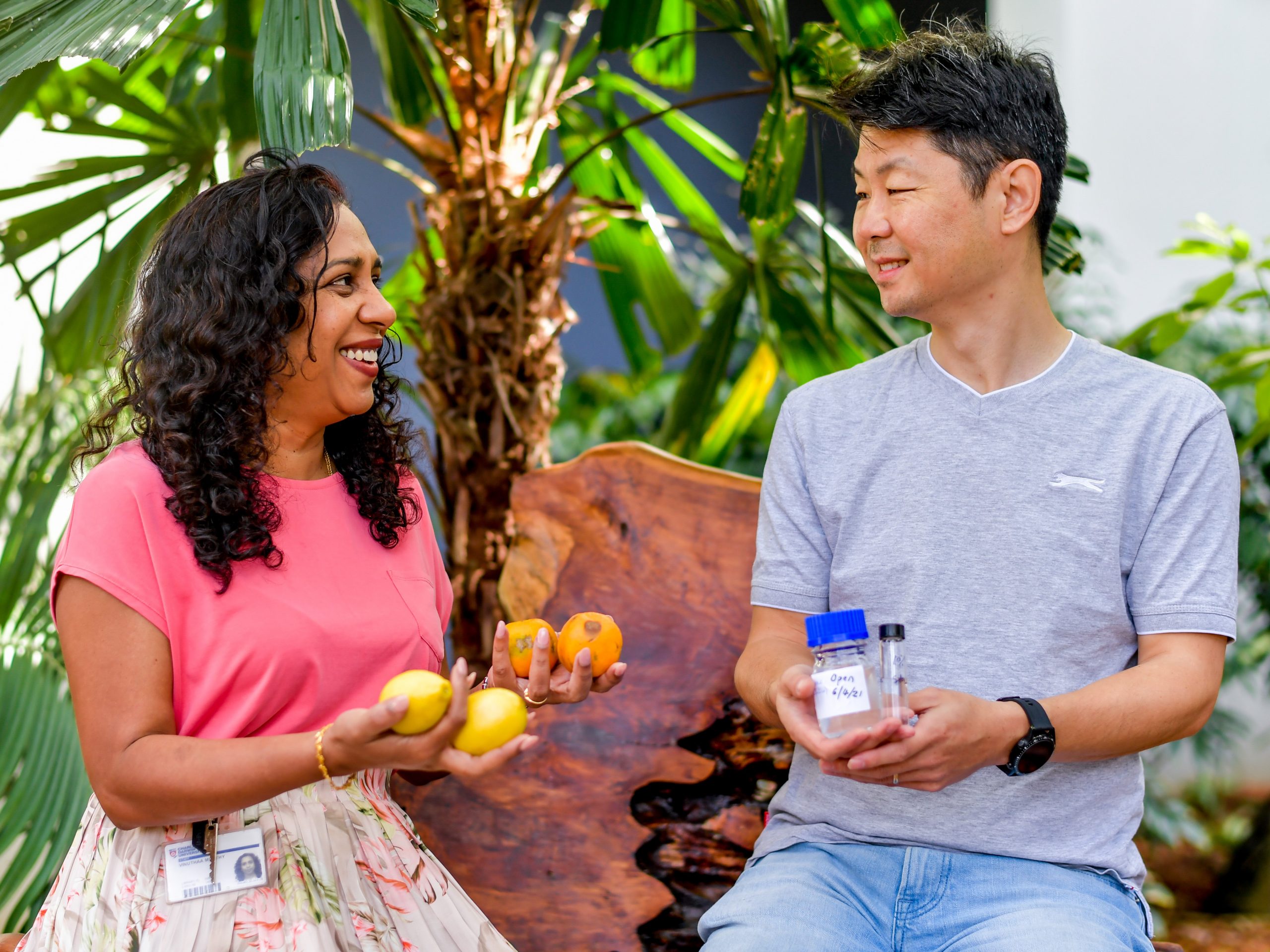The Northern Territory’s citrus industry came under attack in 2018 from a highly contagious bacterial disease called citrus canker.
It was eradicated three years later and now thanks to work done by CDU scientists, the Northern Territory is well prepared should the disease return.
CDU chemists Dr Hao Wang and Dr Vinuthaa Murthy won a contract with the Department of Industry, Tourism and Trade to develop a scent profile and synthesize artificial scent lures specifically for detection of citrus canker disease.
CDU Senior Lecturer in Chemistry at CDU’s College of Engineering, IT and Environment, Dr Vinuthaa Murthy said the project set out to determine the volatile organic compound profile of the infected citrus plants at CDU’s Yellow 2 labs using a gas chromatography mass spectrometer.
“We analysed and identified key chemical compounds that were emitted by different citrus varieties in both infected and non-infected plants. We were then able to develop the chemical composition of the scent blend to make an artificial lure which is used to train detector dogs,” Dr Murthy said.
Detector dogs can discover the disease before symptoms are visible to the human eye. The dogs can also search large farms and orchids very quickly, compared with previous methods.
Citrus canker attacks lemon, lime, grapefruit, mandarins, and native citrus plants, causing the fruit to drop to the ground before it ripens. Crops are destroyed, income drops, and jobs are lost.
“It was a challenging and exciting project to be involved in, and extremely satisfying, because not only does our work help protect the citrus industry, it has the potential to detect all kinds of biosecurity threats,” Dr Murthy said.
Two sniffer dogs are now trained to detect citrus canker in infected plants using the artificial lure.
This article was initially published originally on 7 July 2021 in Charles Darwin University’s eNews. It has been republished here courtesy of CDU media. View the original story.
Lead image: Dr Vinuthaa Murthy (L) and Dr Hao Wang (R) developed a scent profile to detect citrus canker disease. Credit: Charles Darwin University


